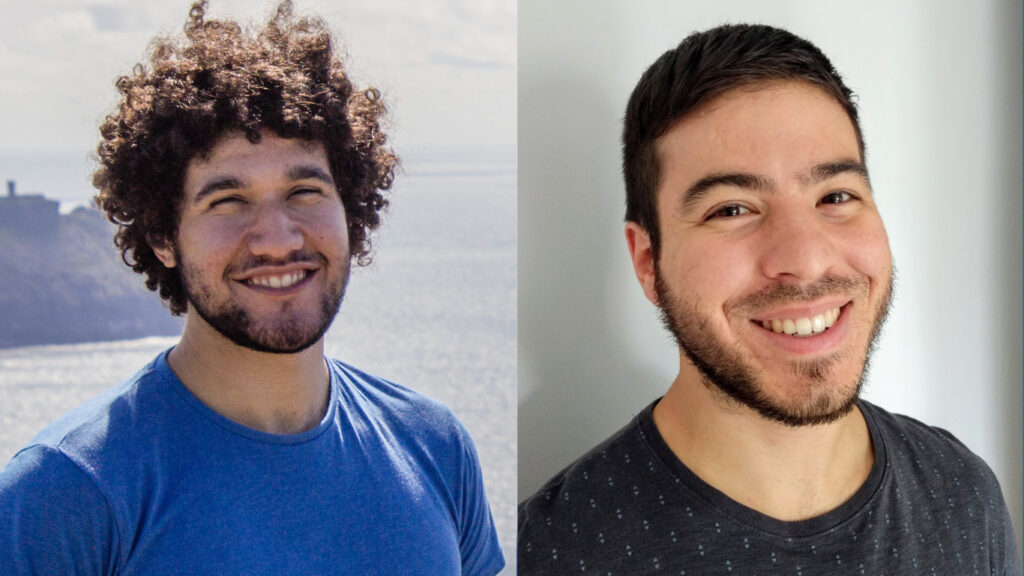The Ocean Awards recognise individuals, community groups, organisations and businesses that have made significant contributions to the health of the marine environment, to the sustainable management of marine resources, or to public engagement with the oceans.
The Ocean Awards judges convened virtually last month to review the impressive list of entries for this year’s awards. The judging panel had the unenviable task of narrowing down over 90 worthy candidates from around the world to just 23 finalists.
As Seaspiracy brings the issue of overfishing to the attention of the world our impressive list of finalists, including both grass root organisations and Oscar winners, give hope that the ocean can be brought back to health. In partnership with the BOAT International, BLUE is delighted to present the 2021 finalists below.
The Awards Ceremony can be watched here.
The Local Hero Category
This award recognises the individual or (grassroots / community-based / local) group that has had the most positive impact on the marine environment within their local community this year. The winner will be a recognised leader on marine conservation issues within their community. Special attention will be paid to those working in an unfavourable environment or circumstances.
Criteria: Nominees for this award must have a) initiated a promising effort for the benefit of the ocean within their community, or b) significantly improved, advanced, or revived an existing effort towards new achievements.
The finalists are:
- Pak Tono – Indonesia
- MARINElife team and volunteers – South-West Dolphin Project
- The Sea Women of Melanesia (Naomi Longa) and the Coral Sea Foundation (Andy Lewis)
Pak Tono – Indonesia
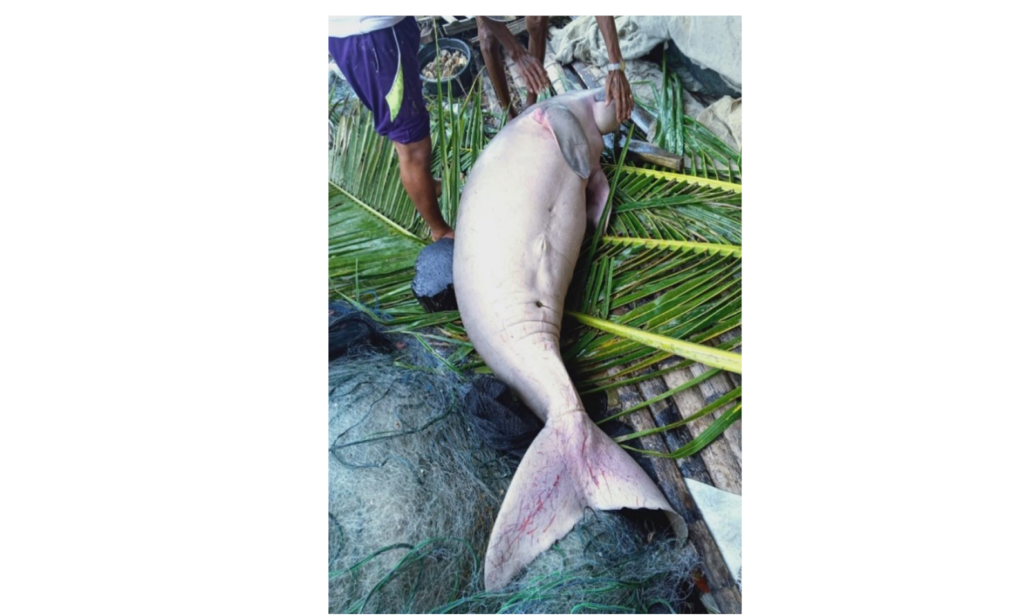
The coastal waters in West Kalimantan Province (WKP) are home to rich and threatened marine biodiversity including dugongs. Despite being protected, dugong populations are declining due to unsustainable fishing practices, water transportation and gillnet entanglement. Ten to 20 dugongs are lost to gillnet entanglement in Cempedak and Bawal island every year. Some fishers sell dugong meat at the market when they get stuck in their nets to make extra money, but Pak Tono, a local fisherman wants to protect them. Tono is a member of the fishing community on Cempedak and Bawal Islands, and an active voice for the protection of dugongs in the region. He contacted WeBe Adventure, a local ecotourism organisation, and Yayasan International Animal Rescue Indonesia (YIARI) about the issues and helps rescue and release them whenever possible. Tono is a strong local advocate for dugong conservation and has been instrumental to starting community-run patrols around main seagrass hotspots. This initiative is promoting sustainable fishing practices and will result in the implementation of a community-designed management and zonation plan to reduce entanglement rates.
MARINElife team and volunteers: South-West Dolphin Project

MARINElife, a UK marine charity, has provided vital new data on threatened or globally endangered marine predators through unfunded surveys. The surveys were completed by MARINElife’s volunteers on ecotourism vessels and via a 35 day CEFAS Peltic cruise, despite major logistical challenges caused by Covid-19. Surveys revealed a major new concentration of globally and critically endangered Balearic Shearwaters and continued presence of White-beaked dolphin, a threatened Priority Species, both in Lyme Bay. MARINElife has developed a Photo-ID tool that can be used by anyone to add any images for any dolphin species and helps capture sightings and images from a wider range of people, especially boat skippers who are out at sea on a daily basis. A new peer-reviewed publication on the globally and critically endangered Shearwater has also been produced, exclusively using MARINElife data to support a candidate MPA.
The Sea Women of Melanesia (Naomi Long) and the Coral Sea Foundation (Andy Lewis)

The Sea Women of Melanesia (SWoM) programme (run by the Coral Sea Foundation) aims to empower indigenous women through scuba diving and marine science skills, enabling them to take an active role in creating and monitoring MPAs within their local region. This also helps boost community awareness and engagement, which is essential for effective MPA designation and management. The SWoM programme has trained over 28 women in two countries and has directly contributed to the initiation and maintenance of more than 15 locally managed marine reserves and contributes funding support to seven reef survey teams of indigenous trainees. The programme meets four of the UN Sustainable Development Goals and is the first of its kind in the region. Watch the short film here.
“The ironic thing is that about half of Melanesia was traditionally under matrilineal tenure for thousands of years – women owned the land and reefs and made the decisions about how it was used. In the last couple of decades, in collision with the modern world, cash economies came in and those traditional roles of female landowners have often been subverted.” – Dr. Andy Lewis, CEO, Coral Sea Foundation.
The Science Award
This award recognises the individual or research team that has made an original scientific contribution about the ocean this year. Nominees for this award must have significantly contributed towards a peer-reviewed publication or study that is directly useful for the benefit of global marine conservation or ocean health.
The finalists are:
- The DSSV Pressure Drop team: Ring of Fire Expedition
- William Cheug (Wai Lung) – University of British Columbia
- Lauren Biermann – Plymouth Marine Laboratory
The DSSV Pressure Drop team: Ring of Fire Expedition

The privately owned and operated DSSV Pressure Drop completed the ‘Ring of Fire’ Expedition during the first half of 2020. Despite the complexities of Covid-19 the team were able to complete six dives to full-ocean-depth at the Challenger Deep (Mariana Trench) using EM-124 sonar, an array of conductivity, temperature and depth (CTD) units and precision acoustic measurement equipment. This is the first time the deepest point of the world’s ocean has been mapped in detail.
The team then proceeded map the Northern Mariana Trench, ‘the Black Hole’, Japan Trench, Kuril-Kamchatka trench, Aleutian Trench. The biological samples collected at each of these sites is expected to yield dozens of new species but also help to understand how hadal fauna is dispersed in these forgotten reaches of our ocean. The hadal zone (the ocean below 6000m) is virtually unknown and is considered the last frontier of exploration on Earth. It is expected to provide key data critical to our understanding of the dynamics of the ocean.
William Cheung (Wai Lung) – University of British Columbia

Climate change is impacting marine biodiversity and the people who depend on them. However, previous projections of these climate impacts did not consider the effects of heatwaves, such as the one in the North Pacific in 2014-2017. This project shows that marine heatwaves will severely amplify the climate impacts on already threatened fish stocks e.g., doubling the rate of biomass decline of salmons in Pacific North America. The study underscores the urgent need for conservation measures to consider episodic extreme events to avoid biodiversity catastrophe and impacts on human wellbeing such as Indigenous food security. The study also provides a methodological framework that can be applied to fish stocks worldwide to inform heatwave-adapted conservation planning globally and regionally. The article has drawn considerable attention by mainstream news (e.g. CBC) and social media – ranking the top 2% of ~280 thousand articles of similar ‘age’ of publication (based on Altmetric score).
Lauren Biermann – Plymouth Marine Laboratory

Dr Lauren Biermann of Plymouth Marine Laboratory made a breakthrough in addressing marine plastic pollution in 2020, being the first to show how floating plastics can be detected and monitored using freely available satellite imagery. Her work is published in Nature Scientific Reports. Until Biermann’s paper, no studies had successfully managed to use satellite imagery to identify and track plastic litter in the marine environment. This research shows that it’s possible to detect aggregated patches of macroplastics floating in coastal waters using optical data acquired by the European Space Agency.
Demonstrating remote detection of marine plastics has convinced the European Space Agency (ESA) to allocate resources to this task and Biermann is working with ESA toward a future plastics detection satellite mission.
The Innovation Award
This award recognises the individual, company or group that has this year publicly introduced innovative measures for reducing stress on the oceans or for improving ocean health; such measures might include business operations which are not undertaken at the expense of the marine environment or development of promising new technologies that benefit the marine environment.
Criteria: Nominees for this award must have undertaken activities or commitments to significantly develop or implement products, services, processes, or measures that have – or are likely to have – a positive impact on the health of the marine environment.
The finalists are:
- Dr Chris Wilcox and the Monitoring Control & Surveillance Analytics Team at CSIRO Oceans & Atmosphere – Chris Wilcox and Leslie Roberson
- Aqualink – Smart Buoy
- Element Hope – Turtle Tower
Dr Chris Wilcox and the Monitoring Control & Surveillance Analytics Team at CSIRO Oceans & Atmosphere – Chris Wilcox and Leslie Roberson
Entry 1: Detecting ‘dark’ vessels using radar

Existing observation systems able to detect ‘dark’ vessels at sea are often prohibitively expensive, especially for developing countries with large marine estates and many small vessels not equipped with tracking technologies like Automatic Identification Systems (AIS). CSIRO developed a technique to provide low-cost data on vessel activities using ships’ existing navigation radar systems, essentially using a ship as a sensor platform. AIS, VMS and satellite data are alternatives, but they are still expensive or essentially voluntary. Vessel tracking systems have limitations where not all vessels are covered, which is the case in areas like Australia, or where only about 60% of a fishing fleet uses AIS.
Entry 2: Using hydrophones to manage and pinpoint marine activity
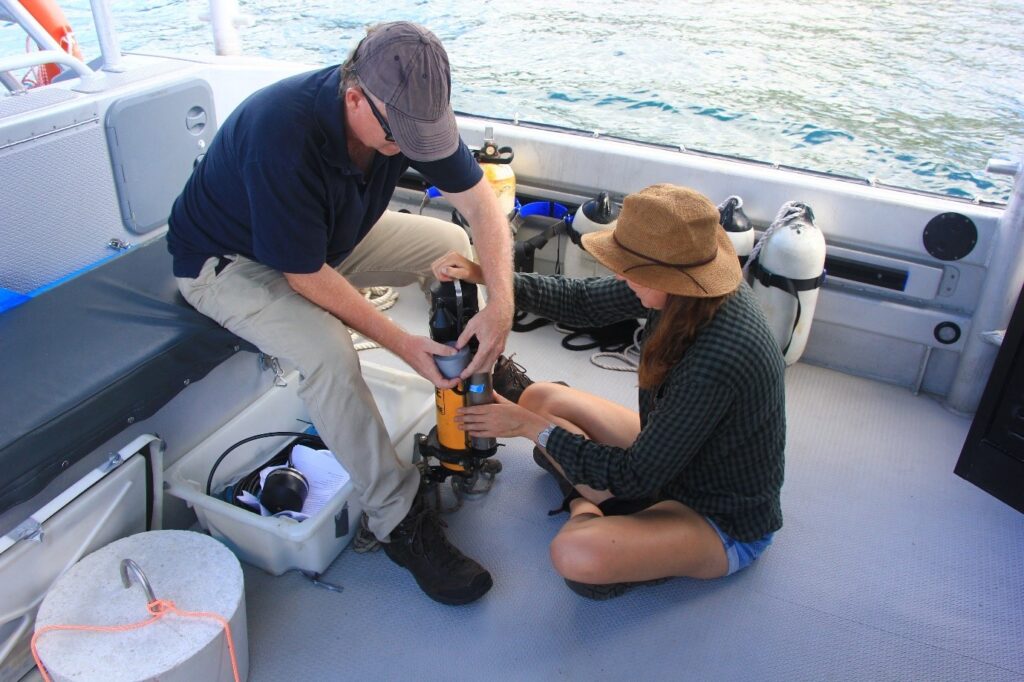
Managing human impacts in the ocean requires inexpensive, widely available and real-time surveillance information. Underwater sound can meet these criteria, allowing managers to tackle issues from fishing with explosives to poaching in marine reserves. While the hardware to record this sound is readily available, two key barriers prevent its widespread use: automated high-quality processing of sound data and reliable inexpensive communication of information.
To address these surveillance needs at an accessible cost, CSIRO took an off-the-shelf hydrophone and married it to a custom buoyancy engine and a satellite communications unit they designed and built over the last 18 months. This allows the hydrophone to sit underwater, detect sounds, and briefly surface to send alerts.
Aqualink Smart Buoy
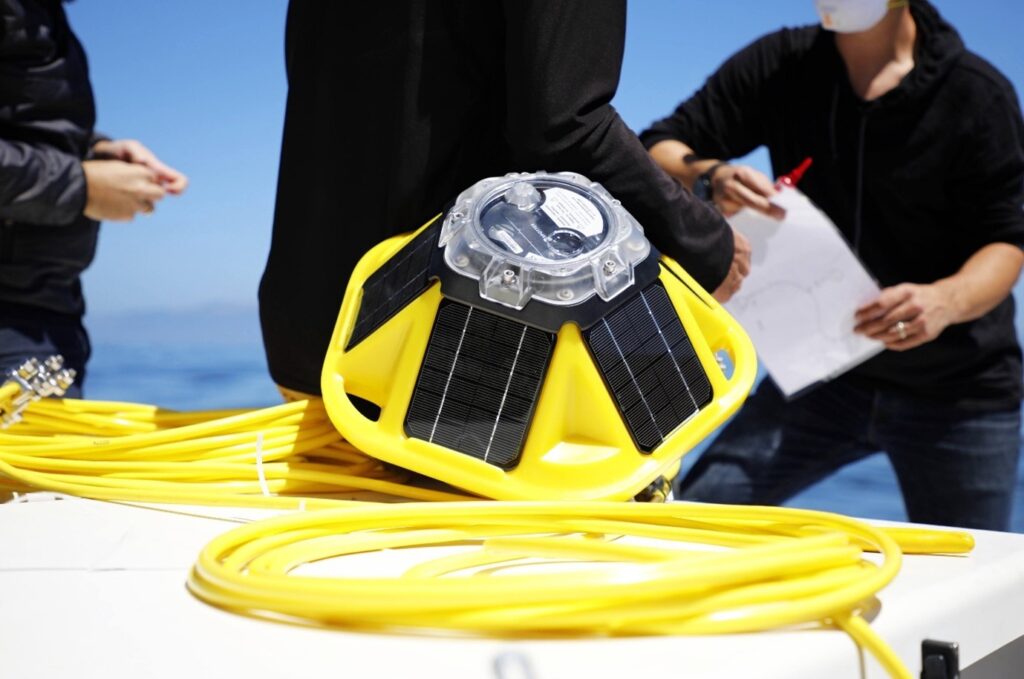
Aqualink aims to build a better ocean database that enables scientists to protect and restore the world’s coral reefs. They are doing this by deploying a global ocean monitoring system that streams data live and provides a platform for local reef managers to connect with experts around the world. The smart monitoring solution will be provided for free to anyone who would like to help understand and protect their local marine ecosystem.
Element Hope – Turtle Towers

Sea turtles are a fundamental component within marine ecosystems. They help maintain the health of seagrass beds and coral reefs that benefit commercially valuable species such as shrimp, lobster, and tuna. Six of seven sea turtle species are listed as threatened or endangered. In collaboration with conservation organizations, Element Hope has created a Turtle Nest Device (patent pending) with the aim to increase population numbers and survival rates.
The Lifetime Achievement Award
This award recognises an individual that has taken the lead on globally significant actions, such as policy or advocacy initiatives, for the benefit of ocean health, over an extended period of time. The winner of this award will have shown consistent leadership and vision on ocean issues, going above and beyond others in their commitment to protecting marine life.
Criteria: Nominees for this award must have a demonstrable track record of leadership on marine issues. They must either have initiated or taken a lead in influencing a globally important effort for the benefit of the ocean or seen an important milestone in a previously initiated effort.
The finalists are:
- Dr Nancy Knowlton – Sant Chair for Marine Science, Smithsonian National Museum of Natural History
- Duane Silverstein – Seacology
- Maximilliano Bello Maldonado – UNFCCC COP26 Ocean Champion, Mission Blue
- Paul Nicklen – SeaLegacy & National Geographic
Dr Nancy Knowlton – Sant Chair for Marine Science, Smithsonian National Museum of Natural History

Dr. Nancy Knowlton’s life-long science, educational and outreach initiatives have made fundamental contributions to ocean health. Her research highlighted the role of alternate stable states in blocking the recovery of marine ecosystems and the importance of genetic diversity of coral-algal symbioses in determining sensitivity to global warming, laying the groundwork for today’s focus on creating more resilient reefs. As the founding director of Scripps’ Centre for Marine Biodiversity and Conservation, she created a global model for ocean solutions-based education uniting the physical, biological and social sciences. Her focus on solutions led to her co-founding the #OceanOptimism campaign, used by over 45,000 Twitter accounts, whose philosophy – balancing threats with solutions so that challenges do not lead to hopelessness – has permeated conservation programming globally.
Duane Silverstein – Seacology
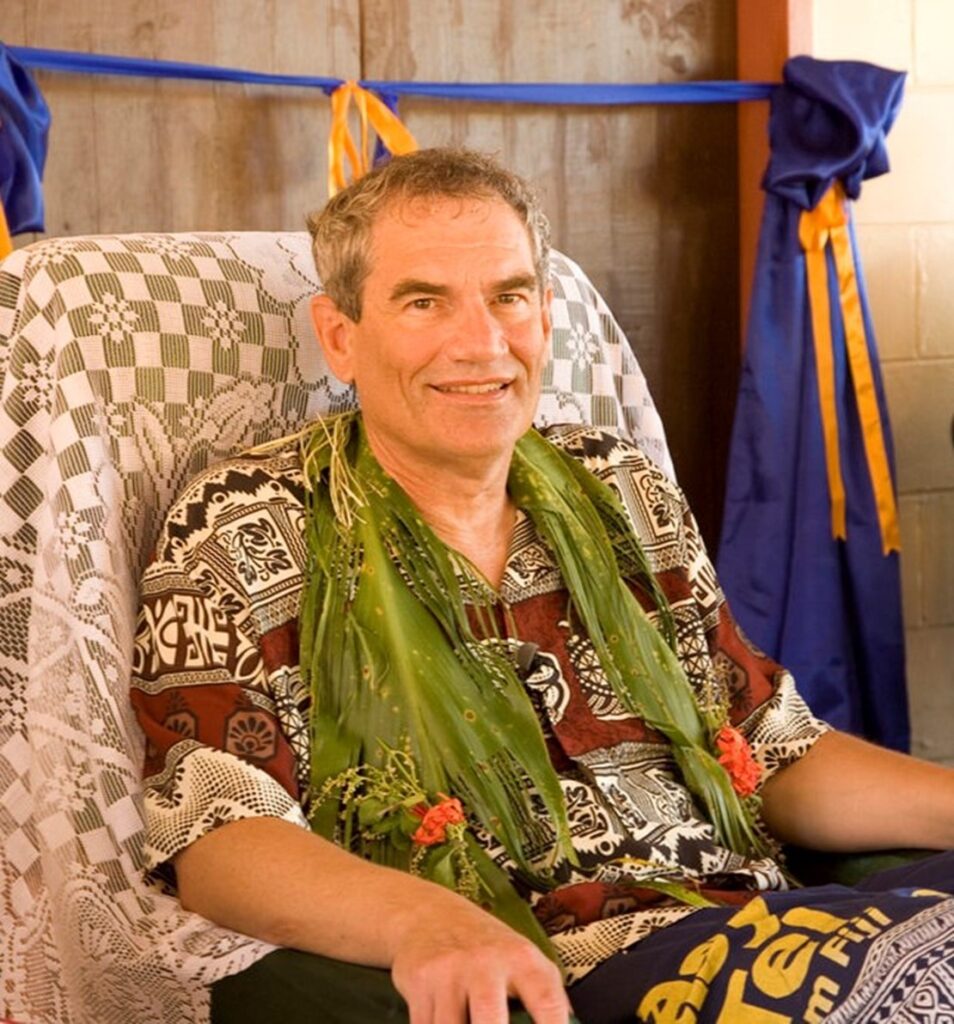
Few people have done more to protect the world’s oceans than Duane Silverstein. In 1999, Duane became the first Executive Director of Seacology, a non-profit dedicated to protecting island habitats and cultures. In the past 20 years, he has grown the organisation from a small non-profit with only $16,000 in the bank into a thriving international environmental organization with a $3 million annual budget and a portfolio of more than 300 projects in 64 countries throughout the world. Duane has led efforts that have resulted in the establishment of over 780,020 acres of marine protected areas where fish and coral reefs are safe from exploitation. Many of these locations (including the Caribbean, Micronesia, the Indian Ocean, and the Coral Triangle) are home to endangered ocean species such as marine turtles, whale sharks, and corals. Most recently, Duane spearheaded an informational campaign in support of the largest marine park in the Cook Islands.
Maximiliano Bello Maldonado – UNFCCC COP26 Ocean Champion, Mission Blue

Maximiliano Esteban Bello Maldonando is an international ocean policy expert who has worked in the environmental arena for over two decades to advance marine conservation priorities. He has worked with WWG, as the Director of Strategy for Centro Ballena Azul, Director of Campaigns for Oceana, and as a key policy advisor for Pew Charitable Trusts for over a decade. Maldonado now works as an MPA Policy Advisor for Mission Blue, is a Global Fellow at The Wilson Centre, Latin American manager of Island Conservation and the founder of and Advisor for the Edinburgh Ocean Leaders programme.
Paul Nicklen – SeaLegacy and National Geographic

Paul Nicklen is a Canadian photographer, filmmaker and marine biologist who has documented the beauty and the plight of our planet for over twenty years. As an assignment photographer for National Geographic magazine, Nicklen captures the imagination of a global audience. He is a TED Talk favourite (>2.5 million views) and shares his photography and conservation efforts with over 6.8 million social media followers. To Nicklen, one of his greatest achievement has been documenting the ice melt in the Arctic and Antarctic. His photograph and video of a starving polar bear became a global sensation, invoking feelings of heartbreak and anger around the climate crisis.
The Public Awareness Award
This award recognises the individual or group that has done the most this year to advance marine conservation objectives, including public literacy about marine conservation issues, through campaigning and advocacy, the mainstream media, art forms or educational programmes.
Nominees for this award must have this year initiated or significantly advanced activities with a demonstrable impact on ocean management or the public understanding or public visibility of an important ocean issue (or issues).
The finalists are:
- Hugo Tagholm – Surfers Against Sewage
- Sea Change Project – My Octopus Teacher
- Oceanic Global – UN World Oceans Day and Covid-19 Plastic Guidelines
Hugo Tagholm – Surfers Against Sewage
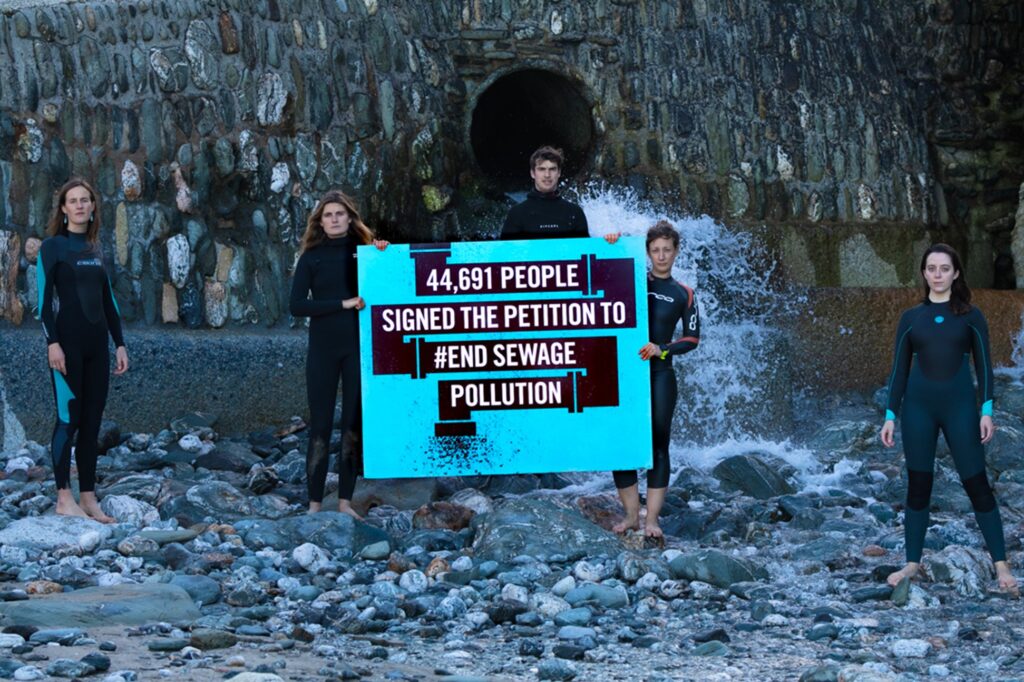
Surfers Against Sewage (SAS) has excelled on delivering public engagement and action on water quality issues this year, addressing the issue of sewage and agricultural pollution. This has been done via the Safer Seas Service (SSS, a unique real-time water quality app and platform for political advocacy), the #EndSewagePollution petition and other innovative campaigns. This has engaged tens of thousands of ocean activists, reached millions in the media and connects the public to the Environment Bill. The Sewage (Inland Waters) Bill has been drafted by SAS and Senior Conservation MP and Chair of the Environmental Audit Committee, Philip Dunne. The Bill will place a duty on water companies to ensure untreated sewage is no longer discharged into England’s inland waters, among other requirements. Through SAS, numerous MPs have pledged to support the bill or its objectives.
Sea Change Project – My Octopus Teacher

My Octopus Teacher (MOT) was produced by South African documentary filmmaker, Craig Foster, and directed by Pippa Ehrlich and James Reed. MOT premiered on NETFLIX on 7 September 2020 as a Global Original, becoming available to an audience of 400 million. The team behind MOT believe that our disconnect with nature is the root of environmental collapse. MOT therefore encourages an emotional connection with nature: “we are part of this world and not visitors.” MOT and their mission of ‘emotional ecology’ has proven to be a viral hit, with incredible international media coverage and public response. MOT has also received thousands of emails from all ages saying how MOT has changed their lives. It has made people interested in a whole new ecosystem – kelp forests. Craig Foster also co-founded the Sea Change Project, dedicated himself to learning the secrets of the Great African Seaforest – the inshore kelp habitat at the South-West tip of Africa and where the film was shot. The Sea Change Project supports numerous public awareness and education initiatives that encourage ‘emotional ecology’, citizen science and art.
Oceanic Global – UN World Oceans Day and Covid-19 Plastic Guidelines

Oceanic Global is the official non-profit production partner to the UN World Oceans Day 2020 virtual event. Oceanic Global creates educational experiences, consults on sustainable operations and engages local communities to generate measurable impact. Projects include major ocean art exhibits across the globe; regional volunteer-based hubs that drive localised impact; industry-specific solutions for businesses; corporate and educational partnerships that promote sustainability; beach clean-ups and large-scale events.
The Young Initiative Award
This award celebrates and recognises an individual between the ages of 18 and 30 who is at the beginning of their career. He or she will have shown commitment and action within ocean conservation. The winner of this award will have demonstrated promising leadership and vision on ocean issues, be it through campaigning and advocacy, the mainstream media, art forms, or educational programmes.
Nominees for this award must have this year shown hard work and determination in their commitment to ocean conservation with a demonstrable impact. They must be able to illustrate how they have shown leadership and implemented their ideas through either a voluntary or professional position.
The Finalists are:
- Francesca Trotman – Love the Oceans
- Nicola Tsiolis – Sea Change Network
- Madeline St Clair Baker – Women in Ocean Science
- Juan Pardo & Silas Principe – PhD university of Agder, Norway
Francesca Trotman – Love the Oceans

At 21 (now 27), Francesca Trotman founded Love the Oceans (LTO) and works tirelessly in Mozambique to establish an MPA. Trotman works with the best interest of the community and oceans at heart, creating a truly holistic approach to ocean sustainability. Covid-19 shut down LTO volunteer programmes, stalled research and community projects, yet Francesca persevered with her work. During this time, she aimed to grow LTO’s social media presence and promote sustainable practices, products and individual behaviour. Nhamussua produced an award winning film that premiered in April about teaching village children about marine conservation, swimming and the ocean.
Nicola Tsiolis – Sea Change Network

Nicola Tsiolis (18) founded Sea Change Network (SCN) which is an organisation that aims “to push for legislative changes to protect oceans in Australia, and to provide students across Victoria and beyond with the tools and skills needed to create their own student-led social justice and environmental groups”. Nicola is also a member of the World Oceans Day Youth advisory Council, collaborating and learning with youth from around the world to create tangible change for our world’s ocean and people.
Madeline St Clair Baker – Women in Ocean Science

In 2018, at just 22, Madeline St Clair Baker founded Women in Ocean Science (WOS), a non-profit marine science communication and female empowerment project, aiming to break down gender barriers within marine science. Conceptualised in the field during her master’s research, Baker wanted to highlight the intrinsic link between the need to protect the ocean alongside the need for a diverse, inclusive workforce of those working to protect it. At 24, Baker now leads a voluntary team of 15 women in helping to close the gender gap through education, celebration and empowerment. In just two years, WOS has featured over 700 women, generated almost 150 blog articles with 140K pageviews, gained an Instagram following of 26K and Facebook group membership of almost 20K, has created a virtual book club and mentorship scheme.
Juan Pardo – University of Agder (UiA) and Norwegian Institute for Water Research (NIVA), Norway and Silas Principe – University of São Paulo (USP), Brazil
PhD students worldwide have been facing significant academic and personal challenges since the coronavirus pandemic began. In the Perspective article, Moving forward with the academic path of marine graduate researchers during coronavirus pandemic, Juan, Silas and their colleagues Debra Ramon, Gabriel Stefanelli-Silva, Isa Elegbede and Luciana Lima, highlighted relevant short and long-term problems caused by the pandemic, provided feasible solutions, compiled the disperse information on opportunities to support marine graduate researchers and suggested online platforms to make the available information more accessible (see table below). It was the first attempt providing some support for early career researchers in the field of marine science.
Ocean Awards Yacht of the Year sponsored by Arksen
This award acknowledges vessels, their owners, and/or crew that have actively helped enhance the health of the ocean. This could be through allowing access for researchers, conservationists and scientists, or through raising awareness of ocean issues, or through hands-on initiatives of their own. This award is designed to celebrate the people behind the scenes who work to allow vital ocean-saving work to occur. The winner will demonstrate a commitment to ocean conservation throughout their vessel function, and the people who serve on her.
Nominees for this award must be able to demonstrate how their vessel and those onboard have provided services to enable work to occur that demonstrably enhances ocean health, either by adapting, or by equipping a vessel, which enables valuable conservation work. Nominees must also provide evidence of the kind of impact the research conducted has had, or could have, on ocean preservation.
The Finalists are:
- Ragnar – Arcon Yachts
- Beluga – Ocean Alliance
Ragnar – Arcon Yachts
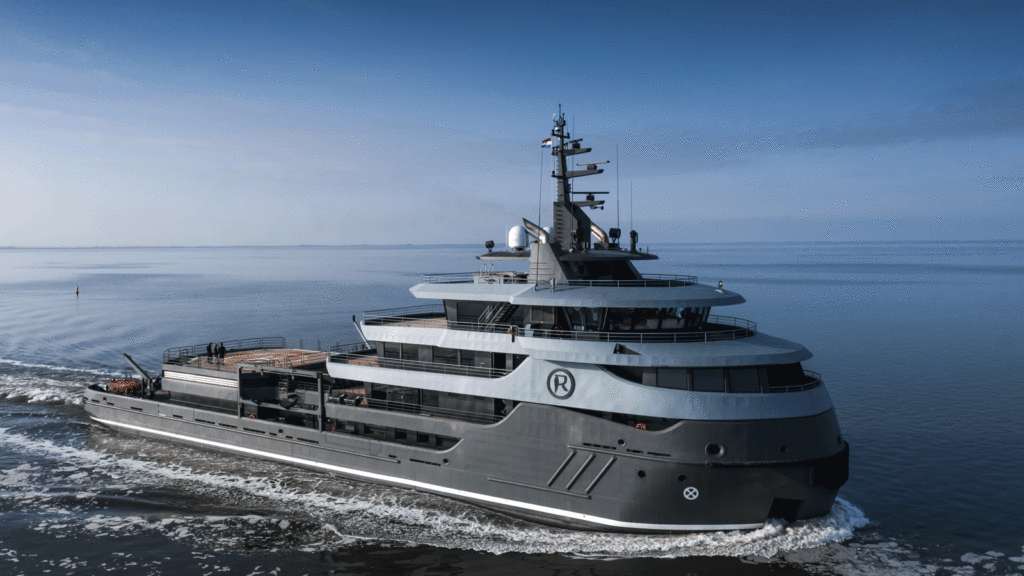
Ragnar is a superyacht explorer capable of automatically transmitting oceanographic and meteorological data of scientific quality. Ragnar is a large-scale conversion yacht, originally made as an icebreaker. After the refit and modernisation, it is now a 62.8m research yacht which is fully prepared for long autonomous trips in any latitude of the world, including the Arctic. It can still perform as an icebreaker and is certified as an Ice Class A1 yacht. Due to a draft of only 3.15m the yacht has access to the most remote corners of the world and shallow beaches.
The scientific instruments on Ragnar collect high quality oceanographic and atmospheric data to be used for climate and ocean research. The Ragnar automatically collects scientific data every six seconds (temperature, salinity, atmospheric pressure, air temperature, wind direction and strength). At two minutes, the OSC-Software transmits the median of the data as well as the geographical position to the vessel to Météo-France, which checks and validates the submitted data automatically. The data collected by the OSC system are available from the meteorological and oceanographic institutes for all 194 countries of the UN.
Beluga – Ocean Alliance

Australia-based yacht agency Ocean Alliance has teamed up with Citizens of the Great Barrier Reef, where individuals can charter MY Beluga while also contributing to marine research. The project aims to make scientific research accessible and easy, whilst utilising science communication in an engaging way. Hands-on interaction with citizen science is encouraged on board, enabling participants to follow the progress and results of their survey. The project also provides a sense of ownership, responsibility and care that will help spread the word about marine citizen science among the close-knit superyacht community.
In November 2020, Beluga was the first-ever superyacht to take part in the Great Reef Census. The Great Reef Census is a world-first for superyacht owners and charterers to participate in conservation efforts on the Australian Great Barrier Reef. It is an opportunity to encourage a culture of ‘yachting for purpose’ and offer charterers on board Beluga the ability to incorporate a meaningful contribution to the ecosystem they are experiencing.

